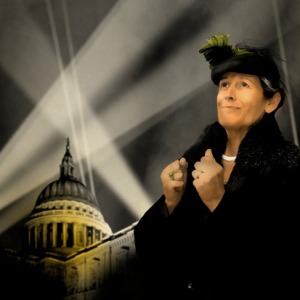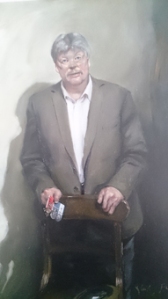Remembering The Ten
Seventy-five years ago on February 22nd 1944 ten USAAF servicemen perished, when their American B-17 Flying Fortress crashed in Endcliffe Park Sheffield England. The plane was returning to Britain badly damaged after a sortie over Denmark, and probably flying with only one functioning engine. The park offered the only green oasis in a heavily built up area, and would have given the stricken craft a safe area for a crash landing. However, a group of boys from two rival schools had gathered there for a fight. They were familiar with the sound of aircraft overhead, but this one didn’t sound right. It flew over them low, circled and returned, and one of the crew signalled to the children to get out of the way. Not understanding the gravity of the situation, the children without moving waved back. The next time the plane circled it barely missed the roofs of housing and crashed into a wooded area. One young boy who witnessed that traumatic event never forgot the sacrifice those men made, so that he and his friends could live. The guilt he has felt over this has only intensified over the decades since.
Tony Foulds was almost eight years old when the aircraft with the call sign “Mi Amigo” crashed on that fateful day. As a seventeen year old he began making a very personal homage to the fallen men, visiting the crash site, planting and tending flowers and tidying around. When a small memorial plaque was finally erected by the Sheffield RAF Association in 1969, Tony continued his pilgrimage to the ten by keeping the memorial in good order and visiting almost on a daily basis. Tony didn’t want those men forgotten and honoured them the best way he could. His dedication over the years virtually went unnoticed, until a chance encounter with BBC presenter Dan Walker.

On January 2nd this year whilst walking his dog in the park, Dan came across Tony and stopped to ask if he was ok. He took the time to listen to Tony as this amazing story was revealed, and heard that the old man’s dearest wish was for the “Mi Amigo” crew to be honoured with a flypast on the 75th anniversary of the crash. Dan said “leave it with me” despite having no military contacts. He took to Twitter after this fateful meeting and his tweet went viral, and so began a lot of background negotiations with relevant groups. Twenty days later, Tony Foulds sitting beside the US Ambassador to the UK Woody Johnson in the BBC Breakfast studio, heard that his flypast wish would come true. The memorial steps have also been fixed and a flag pole erected too.
https://twitter.com/search?q=%40BBCBreakfast&f=videos&src=tyah
Today on the 75th anniversary I watched a BBC special news report from Endcliffe Park, where thousands of people had gathered to witness this special occasion. Flanked by relatives of the “Mi Amigo” crew, Tony was in tears as he waved and greeted the flypast. The planes taking part were F-15E Striker Eagles from RAF Lakenheath, KC-135 Stratotanker, MC-130J Commando II, CV-22 Osprey from RAF Mildenhall, Typhoon from RAF Coningsby and Dakota from RAF Coningsby. They made a wondrous sight as I watched through a veil of tears myself. It was so nice to be able to celebrate such a sad yet uplifting news report. Having read around the story online, I saw somewhere that Tony has lived with Parkinson’s disease for a number of years. This makes his virtual daily visit to the memorial even more remarkable.
Tony thanked everyone for coming, saying the event wasn’t about him but the fallen ten servicemen. Tony truly believes he lives because they died, and his very humble thanks resulted in 66 years of personal homage in honour of that brave sacrifice. I salute Tony Foulds who grew from a traumatised boy into a dedicated champion of the “Mi Amigo” crew. Let’s celebrate that #tonygothisflypast and #RememberTheTen (Endcliffe Park memorial order) : John Kriegshauser, Lyle Curtis, John Humphrey, Melchor Hernandez, Robert Mayfield, Harry Estabrooks, Charles Tuttle, Maurice Robbins, Vito Ambrosio, and George Williams.


